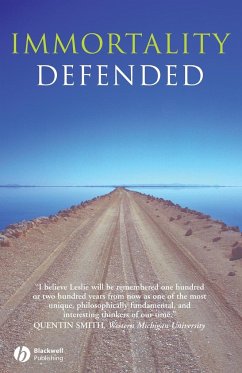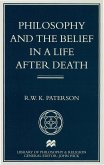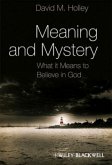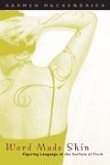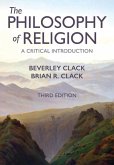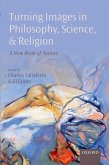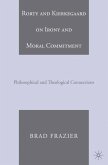Might we be parts of a divine mind? Could anything like an afterlife make sense? Starting with a Platonic answer to why the world exists, "Immortality Defended" suggests we could well be immortal in all of three separate ways. Tackles the fundamental questions posed by our very existence, among them, "why does the cosmos exist?," "is there a divine mind or God?," and "in what sense might we have afterlives?" Defends a belief in immortality, without the need for a religious affiliation or rejection of modern science Explores the ideas of "Einsteinian immortality," the divine afterlife, and the theory of an infinite and divine mind Draws from the work of a wide-range of philosophers, from ancient Greece to the present day, and incorporates up-to-date scientific findings Written in a thought-provoking and engaging manner, accessible to anyone intrigued by the wonder of our being
Why does the cosmos exist? Could we be parts of an infinite or divine mind, as pantheists believe? If so, might we have afterlives? In Immortality Defended, John Leslie, renowned philosopher of religion and cosmology, defends pantheism and three distinct ways in which we could be immortal. Combining a creation story told by Plato with the ideas of Spinoza, this book tackles the fundamental questions posed by our very existence. It explores "Einsteinian immortality" inside an eternally existing four-dimensional whole; the nature of an infinite mind which lives the lives of everybody; and the possibility of an afterlife inside such a mind. Its arguments are drawn from contemporary science, and from philosophy from ancient Greece onwards. This highly original work is accessible to anyone interested in science, philosophy, cosmology or theology, or to those who are just intrigued by the wonder of our being.
Hinweis: Dieser Artikel kann nur an eine deutsche Lieferadresse ausgeliefert werden.
Why does the cosmos exist? Could we be parts of an infinite or divine mind, as pantheists believe? If so, might we have afterlives? In Immortality Defended, John Leslie, renowned philosopher of religion and cosmology, defends pantheism and three distinct ways in which we could be immortal. Combining a creation story told by Plato with the ideas of Spinoza, this book tackles the fundamental questions posed by our very existence. It explores "Einsteinian immortality" inside an eternally existing four-dimensional whole; the nature of an infinite mind which lives the lives of everybody; and the possibility of an afterlife inside such a mind. Its arguments are drawn from contemporary science, and from philosophy from ancient Greece onwards. This highly original work is accessible to anyone interested in science, philosophy, cosmology or theology, or to those who are just intrigued by the wonder of our being.
Hinweis: Dieser Artikel kann nur an eine deutsche Lieferadresse ausgeliefert werden.
"John Leslie addresses issues of belief in immortality and thecreative role of value in a characteristically lively style, in thecourse of deploying a variety of arguments. He is alwaysstimulating, even when one disagrees with him."
Revd Dr John Polkinghorne, KBE, FRS
"I believe Leslie will be remembered one hundred or two hundredyears from now as one of the most unique, philosophicallyfundamental, and interesting thinkers of our time."
Quentin Smith, Western Michigan University
"This is an admirable piece of philosophical speculation, in thegrand manner of great philosophers in the past, but informed bymodern cosmology."
J J C Smart, Monash University
"Thought-provoking ... useful to both the professionalphilosopher and to one just starting ... .Touches on a varietyof topics ... and is exceptionally clear." ReligiousStudies Review
"Leslie has articulated and defended ... the greatsubjects in the history of philosophy: God, the self, the natureand origin of the cosmos, value, and immortality." NotreDame Philosophical Reviews
Revd Dr John Polkinghorne, KBE, FRS
"I believe Leslie will be remembered one hundred or two hundredyears from now as one of the most unique, philosophicallyfundamental, and interesting thinkers of our time."
Quentin Smith, Western Michigan University
"This is an admirable piece of philosophical speculation, in thegrand manner of great philosophers in the past, but informed bymodern cosmology."
J J C Smart, Monash University
"Thought-provoking ... useful to both the professionalphilosopher and to one just starting ... .Touches on a varietyof topics ... and is exceptionally clear." ReligiousStudies Review
"Leslie has articulated and defended ... the greatsubjects in the history of philosophy: God, the self, the natureand origin of the cosmos, value, and immortality." NotreDame Philosophical Reviews

